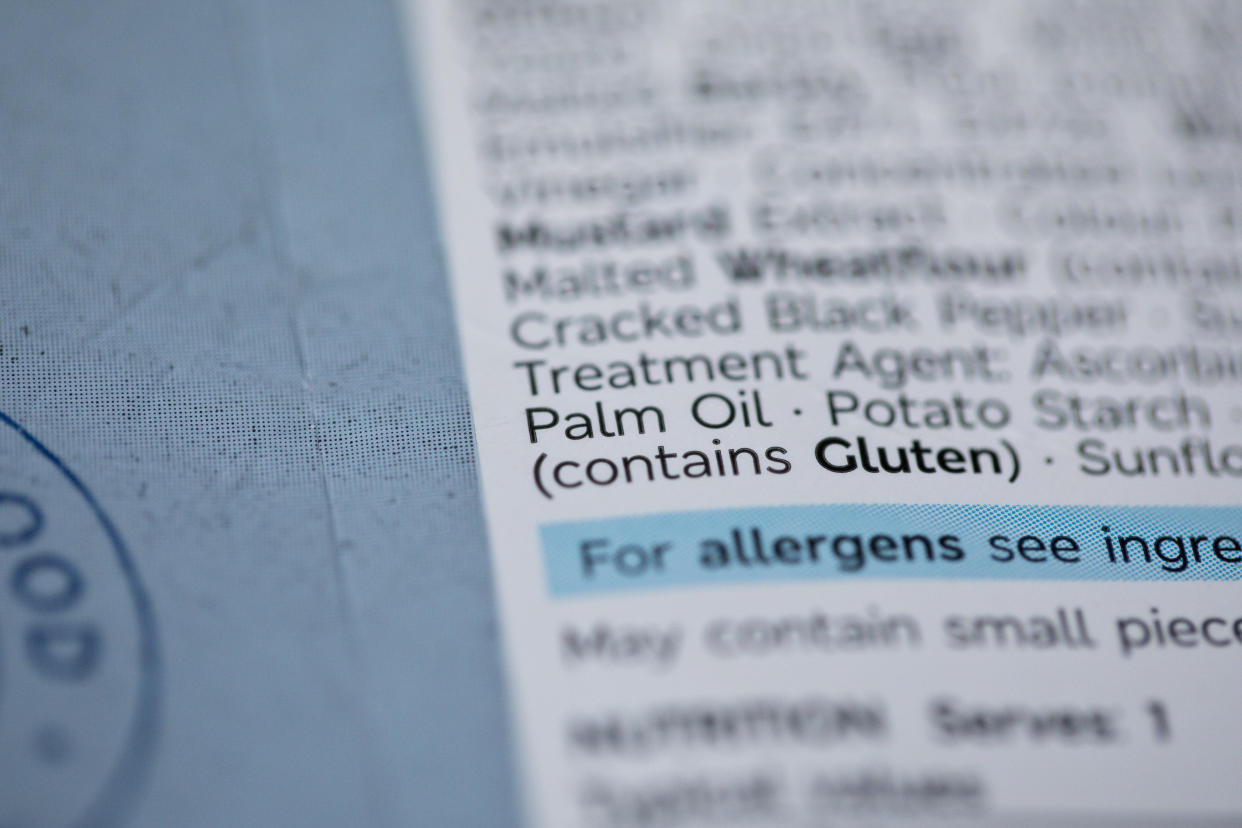Could this common food preservative impact your gut health?

Food preservatives are an everyday norm for many consumers, and feature in a huge array of products in order to extend their shelf lives and prevent spoilage.
Where food preservation was once crucial to human survival, it has now become a massive global industry that is fuelled by growing demand for convenience foods and products that last longer.
But recent research has shown that some types of food preservatives could affect our health and wellbeing, including our gut health.
Whether food preservatives are definitively bad for our gut health has not been shown, but a recent study suggests that one common preservative could interfere with a healthy gut microbiome.
Nisin, a type of lantibiotic that has been widely used in the food industry over the last few decades. It is often found in processed cheese, as well as meats, alcohol and tinned food, like tinned potatoes, peas, and soups.
It was first discovered in England in 1928, but began being used as a food preservative in the Fifties.
A study conducted by researchers at the University of Chicago and the University of Illinois at Urbana-Champaign found that nisin can have a potent effect on both pathogens - which helps stop food from spoiling - but also on gut bacteria that promotes health and wellbeing.

Zhenrun Zhang, PhD, one of the study’s authors, said: “Nisin is, in essence, an antibiotic that has been added to our food for a long time, but how it might impact our gut microbes is not well studied.
“Even though it might be very effective in preventing food contamination, it might also have a greater impact on our human gut microbes.”
The researchers analysed the effect of lantibiotics like nisin on pathogens and commensal gut bacteria. Commensal gut bacteria help the body break down nutrients, produce metabolites and protect against pathogens.
But if too many commensal bacteria are killed off by food preservatives, it is suggested that more aggressive pathogens could take the opportunity to wreak havoc on the gut.
Even though different lantibiotics had different effects, the researchers found that they killed both pathogens and commensal bacteria indiscriminately.
“This study is one of the first to show that gut commensals are susceptible to lantibiotics, and are sometimes more sensitive than pathogens,” Zhang said.
“With the levels of lantibiotics currently present in food, it’s very probable that they might impact our gut health as well.”
Do all food preservatives impact gut health?
Before the advent of refrigeration, traditional ways of preserving food included salting, smoking, drying and fermentation. These methods have been used for centuries and continue today, but using chemicals to preserve and extend the shelf life of food has become more commonplace.
Where gut health is concerned, there is no evidence to show that all chemical food preservatives can cause harm to our gut microbiome. But there is now some emerging evidence to show that some synthetic preservatives can affect it, says Andrea Burton, technical advisor of digestive health supplement brand Bio-Kult.
Burton tells Yahoo UK: "Many people consistently consume these types of preservatives in their diets and the ensuing potential disruption to the microbiome could potentially lead to digestive issues, immune dysregulation and other health problems.
"Other animal studies have shown that synthetic preservatives are able to change the diversity and function of the gut microbiome, damage the gut wall, damage the glands in the small intestine, promote low-grade gut inflammation and promote colitis."
A number of other food preservatives have also been called into question over their potential impact on health. For example, sulphites, which can be found in many food products, may trigger health problems in people who have sulphite sensitivity.
These individuals have reported a range of symptoms, including asthma or shortness of breath, hives or rashes, headaches, nausea, diarrhoea, stress, and fatigue.

Nitrates have also faced controversy. They are commonly used in processed meats and smoked fish to prevent botulism, but studies have linked nitrites to the development of certain cancers, particularly in the colon.
The World Health Organisation also identified nitrites as a cause of 32,000 bowel cancer cases a year. The Food Standards Agency in the UK recommends limiting consumption of red and processed meats to 70g per day due to the link.
Should we avoid foods with preservatives?
While most advice from medical professionals, scientists and dietitians recommends eating a diet packed with fresh fruits and vegetables, as well as healthy proteins like fish and lean meat, it can be very difficult to avoid foods with preservatives.
Burton says: "There are a number of emerging studies showing detrimental effects of some of the most commonly used food additives on gut microbes which may have an impact on gastrointestinal health.
"However, most of the studies published so far have been performed in animals, so the research is inconclusive and needs to be performed in humans before any specific conclusions can be drawn. It’s also important to remember that all preservatives are regulated and must be proven to be safe for human consumption.
"Some of the studies in animals use levels of preservatives that would be too high to be replicated in humans."
However, she adds that given the evidence that shows how some food additives can have a detrimental effect on the gut, it may be "prudent to minimise exposure to food preservatives until more research has been done".
Most common food preservatives in the UK

When looking at the labels on food and drink products in the UK, you will notice some ingredients listed as an 'E number', which is a code starting with the letter 'E' followed by a short series of numbers.
E numbers represent food additives, including preservatives, antioxidants, sweeteners, emulsifiers, stabilisers, thickeners, and others.
Some common E-numbers and the preservative they represent are:
E200: Sorbic acid
Sorbic acid is widely used in food and drink products, and works by inhibiting the growth of moulds, yeasts and bacteria.
E202: Potassium sorbate
This preservative is often found in dried meats, soft drinks, cheese and baked goods to slow the growth of mould without changing how the products look, taste and smell.
E210: Benzoic acid
Benzoic acid is usually found in carbonated beverages. It inhibits the growth of bacteria and yeasts.
E234: Nisin
Nisin has antimicrobial properties and is most often used in dairy products, canned foods, processed meats, and beverages.
E251: Sodium nitrate
Especially common in cured meats and poultry products, sodium nitrate prevents the growth of harmful bacteria. It also enhances flavour and preserves the colour of red meat products.
Watch: Five reasons why you should prioritise gut health
Read more about gut health:
What is the Atlantic diet, 'cousin' of the Mediterranean diet? (Yahoo Life UK, 4-min read)
The 'diet' foods with more sugar than their non-diet counterparts (Yahoo Life UK, 6-min read)
How does a red meat-heavy diet affect gut health? (Yahoo Life UK, 5-min read)


